Keeping your HVAC system protected against extreme weather conditions is an essential aspect not many homeowners pay attention to. These systems often undergo a series of wear and tear during extreme weather conditions such as severe heat, cold, thunderstorms, hurricanes, excessive rain, and more. To ensure that your system does not suffer from costly damage, it is crucial to take the necessary protective measures.
HVAC systems use a lot of energy and can contribute significantly to your utility bills. Therefore, failures can not only cause discomfort but also impose significant costs. The good news is that homeowners can take several steps to ensure their HVAC systems withstand different weather conditions when they occur. This article provides insights into the steps you can take to protect your precious HVAC system against extreme weather conditions.
1. Regular Maintenance and Inspection
Just like any other machinery, your HVAC system also needs regular maintenance & inspection. You need to have professionals come in and carry out thorough inspections of your system at least once or twice a year. The best times to schedule maintenance checks are before summer and winter since those seasons are usually the most extreme.
Regular check-ups can ensure any emerging issues are detected early enough and preventive steps are taken to avoid future problems. During the inspection, the professionals will check all parts of your HVAC, clean necessary areas, check refrigerant levels, and ensure everything is functioning correctly.
2. Insulating the HVAC System
Insulation doesn’t just apply to your home; your outdoor HVAC units need it too. Excessive exposure to extreme heat or cold can affect the efficiency of the system and cause severe damages. Adding insulation to your system can help keep it running at optimal levels and can also help lower energy costs.
3. Installing a Surge Protector
Power surges due to storms can wreak havoc on your HVAC system. A powerful surge can damage your system’s delicate electronics or even destroy the entire unit. Installing a surge protector can safeguard your investment and prolong the life of your system.
4. Providing Adequate Shelter
For outdoor units, it’s crucial to provide a protective cover or shelter to shield them from severe weather elements. These could be things like high winds, heavy rain, hail, and snow which can cause physical damage to the unit. However, it is crucial not to completely cover the outdoor unit as doing so can limit airflow and cause overheating.
5. Clearing Debris Regularly
In high wind situations, debris can cause significant damage to your outdoor unit. It is essential to clear away fallen branches, leaves, and other rubbish and make sure there’s plenty of clearance around your air conditioner or heat pump.
6. Elevating your HVAC units
For individuals living in flood-prone areas, elevating your HVAC unit off the ground could save you from extensive and costly flood damage. A professional HVAC contractor could recommend the best way to keep your HVAC system above ground and protected from potential floodwater.
In conclusion, protecting your HVAC system against extreme weather is not just beneficial but necessary to save unnecessary expenses on repairs or replacements. By taking these precautions, you can extend the life of your system tremendously, improve its efficiency, and enjoy a more comfortable home all year round. No weather condition should catch you by surprise; therefore, you should make it your priority to prioritize your HVAC’s protection, regardless of the weather conditions.

